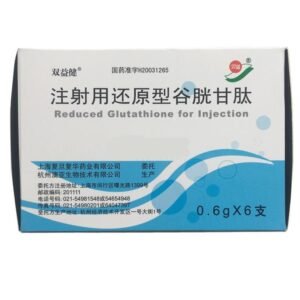Dabigatran Etexilate Capsules.
Effects and efficacy: This product is used to prevent stroke and systemic embolism (SEE) in adult patients with non-valvular atrial fibrillation who have one or more of the following risk factors: previous stroke, transient ischemic attack or systemic embolism; left ventricular ejection fraction < 40%; symptomatic heart failure, New York Heart Association (NYHA) functional class ≥ 2; age ≥ 75 years; age ≥ 65 years, and with any of the following diseases: diabetes, coronary heart disease or hypertension; treatment of acute deep vein thrombosis (DVT) and/or pulmonary embolism (PE) and prevention of related deaths; prevention of recurrent deep vein thrombosis (DVT) and/or pulmonary embolism (PE) and related deaths.
Dosage and administration: Oral, swallow the whole capsule with water, and take it during or after meals. Do not open the capsule. The recommended dose for adults is 300 mg orally per day, that is, 1 150 mg capsule each time, twice a day. Long-term treatment should be maintained. Patients with bleeding risk in special populations The following are factors that increase the risk of bleeding: age ≥75 years, moderate renal impairment anhydride clearance (CrCL) 30~50ml/min, or receiving combined treatment with potent P-glycoprotein (P-gp) inhibitors, combined treatment with antiplatelet drugs, or previous gastrointestinal bleeding, etc. For patients with one or more of the above risk factors, doctors may consider reducing the patient’s daily dose to 220mg, that is, 1 110mg capsule each time, twice a day. Patients with impaired renal function Before starting treatment with this drug, renal function should be assessed by calculating creatinine clearance, and patients with severe renal impairment (i.e., CrCL < 30 ml/min) should be excluded. There are no data to support the use of the drug in patients with severe renal impairment (CrCL < 30 ml/min); treatment with this drug is not recommended in these populations. No dose adjustment is required for patients with mild or moderate renal impairment. For patients with moderate renal impairment (creatinine clearance of 30-50 ml/min), renal function should be assessed at least once a year. During treatment, renal function should be assessed when there are clinical conditions that may cause a decline or worsening of renal function, such as hypovolemia, dehydration, and some specific concomitant medications. Dabigatran can be removed by dialysis; there is limited experience in the clinical application of this method in clinical trials. Elderly patients The treatment dose for patients aged 80 years and above is 220 mg per day, i.e., one 110 mg capsule twice a day. Pharmacokinetic studies conducted in the elderly have shown that drug exposure increases in patients with age-related decline in renal function. Because renal impairment is common in elderly patients (>75 years old), renal function should be assessed by calculating creatinine clearance before starting treatment with this product, and patients with severe renal impairment (i.e. CrCL <30ml/min) should be excluded. See Dosage and Administration in Patients with Renal Impairment. Conversion therapy with other drugs: Conversion from this product to parenteral anticoagulant therapy should be performed 12 hours after the last dose of this product. Conversion from parenteral anticoagulant therapy to this product should be taken within 2 hours before the next treatment time. If the patient is receiving maintenance therapy (such as intravenous unfractionated heparin), this product should be taken when the drug is stopped. Vitamin K antagonists should be discontinued when switching from vitamin K antagonists to this product. When INR prothrombin international normalized ratio is >50. When the ratio is <2.0, this product can be used for treatment immediately. When switching from this product to vitamin K antagonist treatment, the decision on when to start vitamin K antagonist (VKA) treatment should be based on the patient’s creatinine clearance; when CrCL≥50ml/min, VKA treatment should be started 3 days before discontinuation of dabigatran etexilate; when 30ml/min<CrCL<50ml/min, VKA treatment should be given 2 days before discontinuation of dabigatran etexilate. Other cardioversion: This product can be used for treatment during cardioversion. The same drugs produced by different manufacturers may have inconsistent instructions. If you find inconsistencies in the instructions before taking the drug, please consult a doctor or pharmacist in time.
Drug contraindications:
Allergic to this product is prohibited. Renal impairment is prohibited.
Related dosage forms:
Capsules
Share:
Products
Our offers
Health Classification
Let us work together to protect precious health































